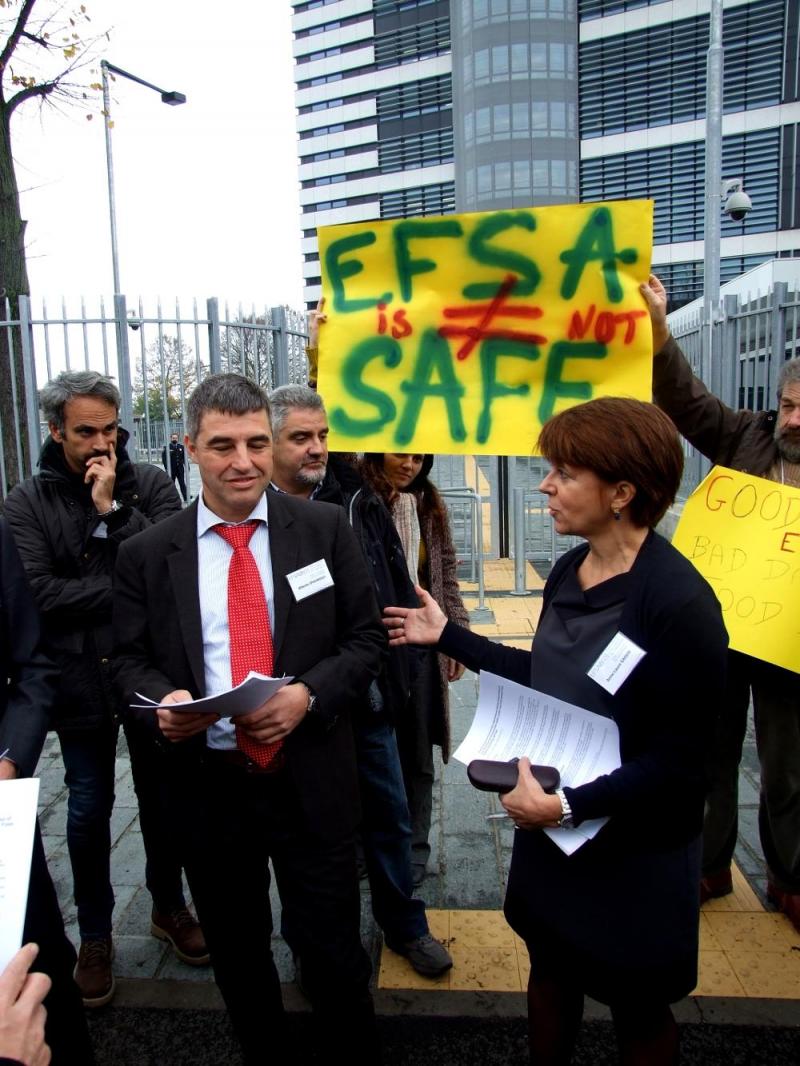
Five demands for change at EFSA
Signed by several European civil society networks and organisations, this list of demands for the reform of EFSA was published on Monday 12 November during a conference of farmers, scientists and citizens held in the premises of Parma's University, Italy, and delivered to EFSA during a demonstration in front of its headquarters the following day. (summary - full version downloadable in the pdf below)
1. Prevent conflicts of interest
EFSA's independence policy should effectively exclude people with conflicts of interest from its scientific panels, working groups, scientific committee and staff. Also, the management board should be free from people with industry interests.
2. EU laws should be overhauled so that products are tested by independent bodies, not industry
3. A code of scientific practice should be established for EFSA
Currently it is often not clear how EFSA arrives at certain opinions and conclusions: for example, which scientific evidence it has taken into account and why. Scientifically rigorous, transparent and replicable methodologies for EFSA’s risk assessment work should be established.
4. Improve transparency and accountability
EFSA must make accessible all data and information on which it bases risk assessments. All industry data, and EFSA’s decision-making processes on the data, must be available on the internet. Currently this is not the case for instance for pesticides.
5. Ensure wider participation
EFSA must broaden the area of scientific expertise of its experts. EFSA experts should be paid out of public funds for their safety assessment work, but industry must cover the cost. A system must be established to include different types of input into the risk assessment, including societal, economic, ethical and environmental factors – though this should not be the task of EFSA.
Signatories
Friends of the Earth Europe, IFOAM EUGroup, Greenpeace European Unit, Pesticide Action Network Europe, Réseau Environnement Santé (RES), HEAL (Health and Environment Alliance), Sociedad Española de agricultura ecologica/Sociedad Española de agroecologia (SEAE), Corporate Europe Observatory, Earth Open Source, European Professional Beekeepers Association (EWIV), Food&Water Europe, ASEED Europe, BUND – Friends of the Earth Germany, Cancer Prevention and Education Society (CPES), Ecologistas en Accion, Fondation Sciences Citoyennes, GMWatch, Platform Aarde Boer Consument, Polish Forum of Organic Agriculture, Union Nationale de l'Apiculture Française, XminY solidarity fund
